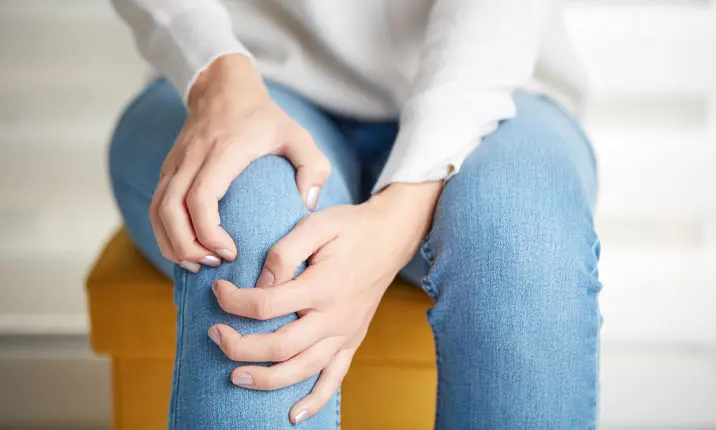What is crepitus?
We've all experienced that satisfying sound in our joints at one point or another. It is quite common for our knees, knuckles, back and neck to make a 'crack' or 'pop' as we bend and flex the various parts of our bodies.
These sounds are medically known as 'crepitus' and usually increase in frequency as we get older. The good news though, is that the sounds themselves are not a cause for concern. Thus far, cracking your knuckles has not been found to cause arthritis or joint damage.
What causes crepitus?
It's a common misconception that the cracking or popping sound you hear is caused by your bones. However, crepitus is actually the sound of trapped gases being released from the fluids between our joints as we move around. Nitrogen bubbles in the synovial fluid between our joints build up over time and are released when a joint is used in a certain way, such as reaching up, or bending for a stretch.
Why does cracking your knuckles and joints feel good?
Cracking our joints releases chemicals called endorphins which can ease pain and induce a sense of pleasure. As a result, it feels as though tension dissipates in our joints.
When are these cracking joints a cause for concern?
The cracking or popping noises by themselves aren't a cause for concern. However, if you notice the following symptoms, it could be a sign that something isn't right.
Here are some symptoms to watch out for:
- Swelling
- Pain
- Dull aching around the joint
Medical conditions associated with cracking joints
There may be occasions when crepitus isn't as simple or pleasurable as relieving trapped gasses in your joints, especially when you may be experiencing the following conditions:
Arthritis
Arthritis causes our joints to become swollen and stiff. As a result, some movement result in pain. As we get older, the swelling, stiffness and resultant pain tends to worsen if left untreated.
The most common forms of arthritis are osteoarthritis and rheumatoid arthritis.
- Osteoarthritis is characterised by the breakdown of the hard tissue (cartilage) between your joints.
- Rheumatoid arthritis occurs when the lining of your joints are attacked by your own immune system.
If you suffer from these conditions, the sound you hear in your joints could actually be due to the movement of damaged cartilage and bone.
Meniscus tears
The meniscus is the piece of cartilage that absorbs pressure between the bones in our knees. This cushioning prevents our bones from grinding against each other.
Unfortunately, this soft cartilage can tear when performing strenuous sports like soccer or basketball. The torn meniscus piece can become stuck in between our joints and impede movement. This can cause a popping noise in the knee, along with pain and swelling.
Patellofemoral pain syndrome
This condition, also known as 'runners knee', refers to a dull pain around our kneecaps. This pain tends to increase with repeated strenuous exercises such as running or stair climbing. The pain can be accompanied by a grating noise in the knee.
When to seek diagnosis and treatment for cracking joints
If the cracking of joints causes pain, stiffness, swelling or bruising, it is best to seek medical attention to get a proper diagnosis and treatment plan.
Diagnosing medical conditions associated with cracking joints
While a physical examination of a swollen and painful joint may be enough for an orthopaedic specialist to diagnose the nature of the condition or injury, additional imaging tests may be recommended. These include X-rays and magnetic resonance imaging (MRI) scans.
Treating medical conditions associated with cracking joints
The treatment of the underlying condition may be non-surgical or surgical.
Non-surgical treatment
Non-surgical treatment includes activity modification, analgesics for pain relief, physiotherapy and home exercises.
Surgical treatment
Surgical treatment usually involves arthroscopy, which is a minimally invasive keyhole procedure. In an arthroscopy, the surgeon will create a small incision in your skin near your joint and insert a thin tube with a tiny video camera attached to the end. They will then be able to see the inside of your joint by displaying what the camera records on a live video monitor.
Once your surgeon can get a good view of your joint, they will perform the necessary procedure using very thin surgical tools that are inserted through other small incisions around the joint.
Arthroscopy is generally preferred over open surgery as it involves smaller incisions, which means a faster healing time and shorter hospital stay.
When to see a doctor
While the occasional cracking or popping noises in your joints is no cause for concern, consult an orthopaedic specialist when in doubt, or if you experience any pain, swelling or discomfort.














